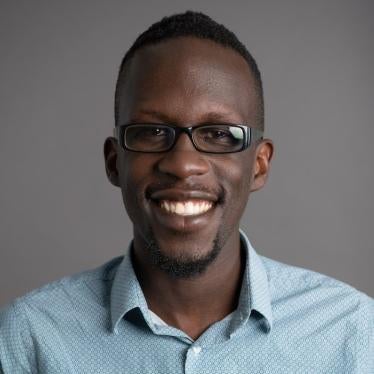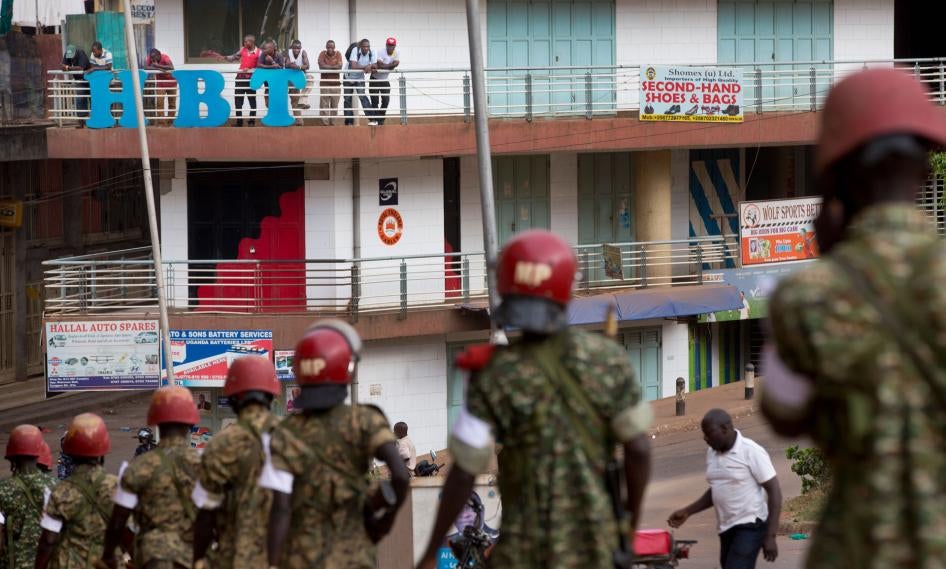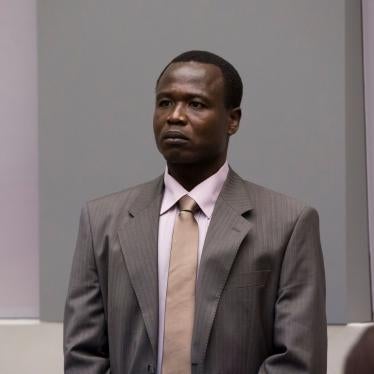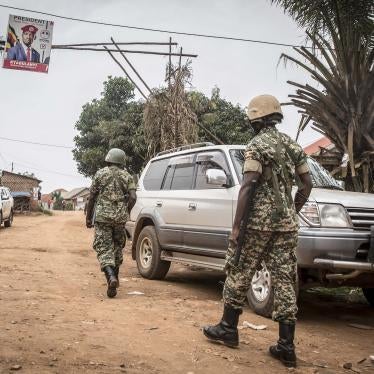On February 17, military police beat at least ten journalists covering Uganda’s opposition leader Robert Kyagulanyi — also known as ‘Bobi Wine’ — as he delivered a petition to the United Nations Office of the High Commissioner for Human Rights in Kampala. His petition was to protest human rights abuses and abductions of his supporters in the run up to and after January’s contested presidential election.
The next day, the army issued an apology for the beatings and announced that a military court had given seven members of the military police a “severe reprimand” for assaulting the journalists, and sentenced them to two months detention in a military facility. While an important step, the army did not share details about its investigations or the military trial process. Two of the assaulted journalists told Human Rights Watch they had not even been informed about the proceedings far less called to testify.
Violence against journalists in Uganda is not new. During the recent election campaign security forces beat and shot at journalists who were covering opposition rallies. In November 2020, police shot Moses Bwayo in the face with a rubber bullet as he filmed Kyagulanyi arriving at his party’s office, and in December the journalist Ashraf Kasirye was badly injured after police shot him while covering a Kyagulanyi rally. Security forces have also beaten journalists covering student protests and used enforcement of Covid-19 regulations, as a pretext for other beatings. The authorities have even threatened direct violence against journalists. On January 8, police chief Martin Okoth Ochola said at a news conference ahead of the elections that, “we shall beat you [journalists] for your own sake.”
Ugandan law incorporates many of the government’s human rights obligations, including protection for freedoms of speech and assembly, a prohibition on torture and inhumane and degrading treatment, and explicitly provides for the prosecution of officials committing such abuses. The authorities should uphold these laws and build on the measures taken against the military police, including reforming the security sector, conducting transparent investigations and fair trials for abuses against journalists and others, and properly compensating victims.










